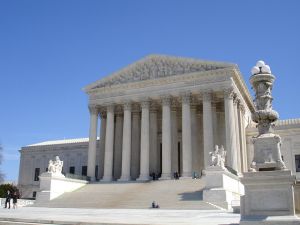What do the First Amendment and your vanishing stock portfolio have in common?
The answer is the need for openness, transparency and watchdogs on powerful institutions. The people who created the First Amendment more than two centuries ago had never heard of hedge funds, but they knew that too much power and wealth concentrated in too few hands would create a huge problem. Sadly, that lesson got lost in the financial markets as greedy hedge funds and investment banks piled up money in opaque investments and a complicit administration ignored the warning signs of financial disaster created by things like the subprime mortgage crisis. Because little information about many investments such as hedge funds is publicly available, neither the press nor public were able to ferret out information and help the government do its job of keeping businesses honest.
Now, a watchdog press is pointing out that there were plenty of warning signs, but the problem was hidden too long by powerful financial institutions and an administration which got enough support from those financiers to make it all too willing to look the other way. We’re finding out now — after stock indexes have dropped 40 percent — what happened to us. As President-elect Barack Obama said today, agencies like the Securities and Exchange Commission were “asleep at the switch” while people like Bernard Madoff apparently made off with billions of dollars.
 First Amendment Lawyer Blog
First Amendment Lawyer Blog


 A California Court of Appeal, in the well-reasoned decision of O’Grady v. Superior Court,
A California Court of Appeal, in the well-reasoned decision of O’Grady v. Superior Court,